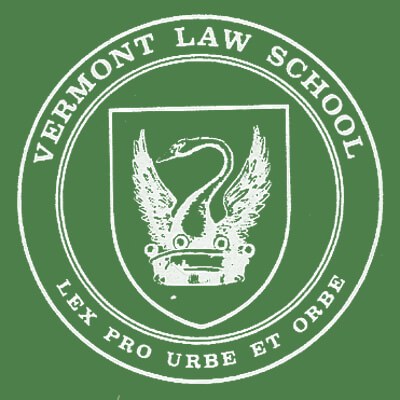
When she isn't working, Abby enjoys playing golf, walking her dogs, and trying to teach her new puppy not to destroy her home. She is also a sports fan, having played and watched sports all of her life. When asked about her favorite sports team, she claimed, "I love every Boston sports team and consider the Red Sox comeback against the Yankees in the 2004 American League Championship Series to be the 'best' (and most grueling) viewing sports moment in my life."
Successful Director of Career Services
Why did Abby decide to become a career counselor? "I had held several previous positions at Vermont Law School, including teaching legal writing, appellate advocacy and Torts (for one semester) and really enjoyed working with students, but did not enjoy grading papers or exams, so when an opportunity arose to shift into career counseling I jumped at it."
What is the best part of her job? "Watching a student achieve success."
What does the director of career services have a knack for? "I think I have a knack for connecting with students who are panicked about their futures."
Abby was asked how the market has affected students' ability to obtain positions they want. "In short, there are fewer opportunities with the traditional legal employers - larger firms, organizations and agencies - and, as a result, more pressure on all of the other opportunities."
What does Abby do to prepare students who are entering the workforce in a downward economy?
"I encourage them a) to be serious and focused about learning the law, b) to seek out opportunities to write about topics in about which they are passionate, and c) to gain as much hands-on experience as possible through clinics, externships, summer jobs, volunteering, etc., since that will help them understand and appreciate the substantive and professional expectations that employers have and prepare them for their professional futures."What advice would she give to students who are about to graduate and enter the workforce?
"In general, I think students need to be flexible and persistent, and need to circulate/network/connect with other professionals in whatever way is comfortable for them, e.g., attend bar events, join subject specific professional associations (even if they are not lawyers), plan to volunteer while waiting for bar results, etc. It is what law students have done for years and continues to be the model that works. Having said that, I also think they need help identifying jobs - traditional legal jobs as well as law-related positions - that will allow them to use their backgrounds and get on track professionally. This is particularly true for younger, less experienced students (particularly those who did not take advantage of the chance to gain experience during school). As a result, I applaud the efforts of law schools to provide dedicated help to recent grads who are looking for work."When asked what advice she would give to a student who is struggling with their coursework, Abby stated, "To get help from someone….a professor, the academic support center that most schools have now, the student affairs office, someone who will help the student get back on track. It is critical that they not disappear into the woodwork."
What advice does Abby give to a student who doesn't know what career path to take after he/she graduates? "They need to remember to take the long view. I know that it is hard to do, but most students will have 40 years or more of work ahead of them and finding the job that will best take advantage of their background is likely to be a process. As a result, I think it is best for them to just start somewhere and not worry whether it is the perfect job."
In regards to her strengths and one weakness as a college career counselor, Abby said, "I think I am patient, optimistic, direct, and honest in dealing with students and have an ability to help them define a realistic and workable plan for their future. As for my weakness, I spread myself too thin, which frustrates students when I am delayed in getting materials back to them."
As the director of career services, what area of counseling is Abby most passionate about? "I am most passionate about helping whoever I am working with achieve success as they define it, not as I define it."
What motivated Abby to become a college career counselor? "I was looking for a job in Vermont that would take advantage of my teaching background, my law training and my interest in working with students. This position was suggested by a former Dean and I feel very fortunate to have found a job that I truly enjoy."
If she wasn't the director of career services at Vermont Law School, what would she most probably be doing? "I would be teaching something somewhere."
Where does Abby see herself in five years time? "Considering that I have been at Vermont Law School for 25 years, I think I will be here."
Non Profit Organizations, The Downside of Her Position and Abby's Goals
Is Abby involved with any non-profit organizations? "I am the President of the Board of the White River Partnership, a local watershed group."
Is there a downside to her position? "The perceptions that career counselors are either touchy-feely hand-holders who want to do self-assessment tests with students and sing Kumbaya or non-academics who are only interested in getting students jobs without regard to their overall academic and professional preparation."
Does the director of career services have professional and personal goals? "Professionally, to continue to have a satisfying professional life that involves finding new and creative ways to help Vermont Law School students achieve success. Personally, my long-term goal is to be able to retire some day; short-term - to develop a backyard maple syrup operation and build a maple sugar house this fall."




